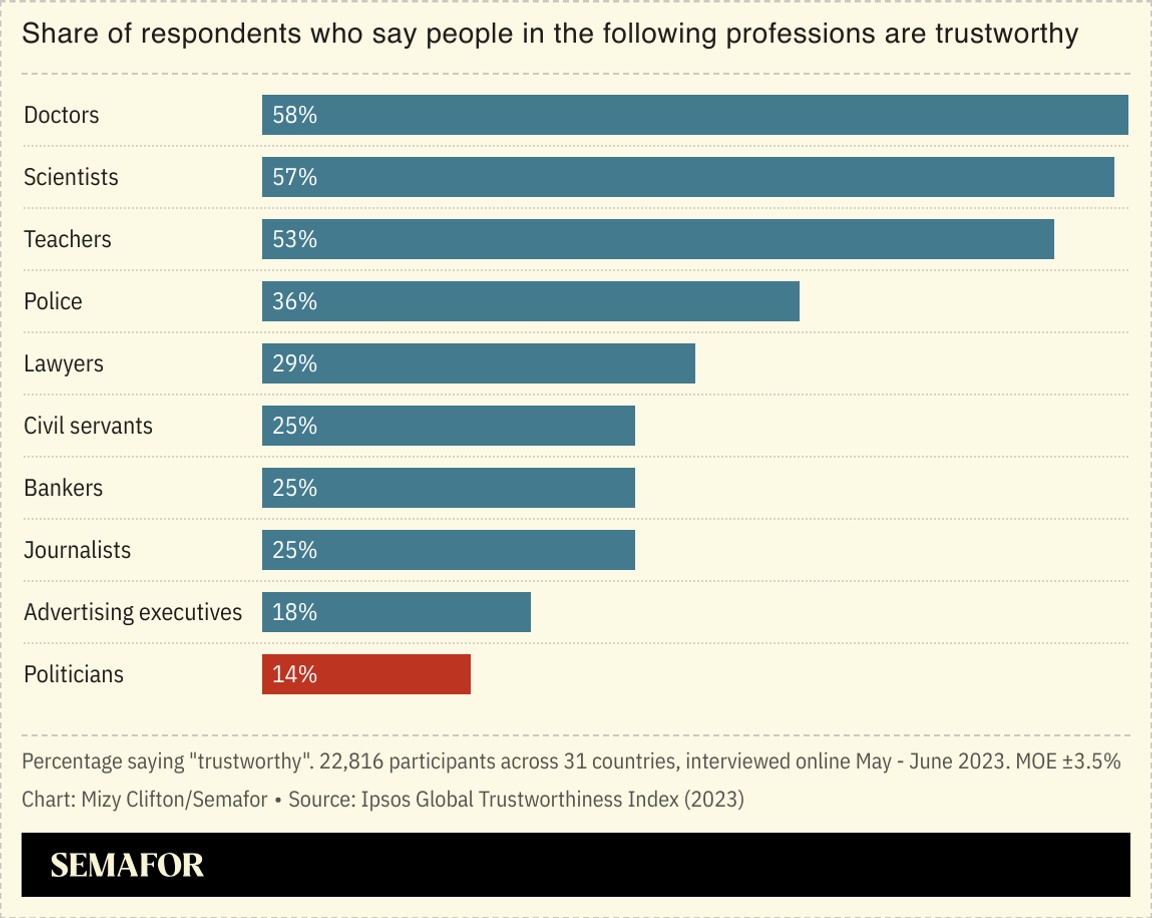 Public hostility to politicians pushes good candidates away, and bad candidates make the public more hostile to politicians, creating a “doom loop,” a Financial Times columnist argued. Almost everyone deplores actual violence, such as the assassination attempt on former US President Donald Trump, Janan Ganesh wrote. But harassment, intimidation, abuse, and cynicism are much more commonplace, and deter able or even “well-adjusted, non-masochistic” individuals. That makes the quality of public life lower, which makes politicians less popular, and the cycle begins again. It’s our right to deride our politicians, said Ganesh, but “the joke, in the end, is on us.” |